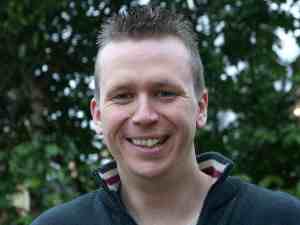 Andrew Forster has lived and worked in two inspirational places: Dumfries and Galloway and the Lake District, where he is now based. Here he describes the influences these places have had on his poetry. He will be taking part in StAnza’s Poetry Breakfast on poetry and nature, 9 March and will be reading at StAnza’s Border Crossings on 10 March.
Andrew Forster has lived and worked in two inspirational places: Dumfries and Galloway and the Lake District, where he is now based. Here he describes the influences these places have had on his poetry. He will be taking part in StAnza’s Poetry Breakfast on poetry and nature, 9 March and will be reading at StAnza’s Border Crossings on 10 March.
Rather than deliberate attempts to explore a subject, some themes slowly emerge as the poems accumulate. In 2001 I moved from the East Coast of Scotland to Leadhills, a small, former mining village on the border between South Lanarkshire and Dumfries & Galloway. It’s a marginal place in lots of ways. It’s 1500 feet above sea level and there are only 400 houses, only a third of which were occupied when I went to live there, and many of which were derelict. Most of the houses owned packages of land, allocated to them when the Leadmines closed, but very few were fenced and most cottages just gave out onto open hillside.
It’s a place of extremes, not least of extreme weather, and felt like living on the edge of wilderness. The experience of making a home there found its way into the poetry I was writing, and this kickstarted a more systematic poetic exploration of the area: its history, natural history, sense of community and its landscape. Living so close to nature raised questions about our relationship with it, and as the collection ‘Territory’ took shape, these questions became an important element.
Animal encounters were a recurring theme and, amongst the whole resurgence of nature and ‘eco-poetry’ that emerged around this time, I started to think about the role poetry had in relation to animals. It struck me that as people, we respond to animals in ways that can’t always be explained away in scientific terms, and I tried to articulate these responses through poetry.
In 2008 I moved again, to Cumbria this time, taking up a job with the Wordsworth Trust in Grasmere. I live in Grange-over-Sands, an Edwardian merchant town on the northern bank of Morecambe Bay, and go to work along the shores of Lake Windermere into the tourist hotspot of the Central Lakes, to an office that overlooks Dove Cottage, former home of William Wordsworth. All of this is finding its way into the poems that will make up my next book, a project that had it’s genesis in a collaboration I did with the artist Hugh Bryden, ‘Digging.’ Once again the central question is what does it mean to live and work in a place like this, what responsibilities does it place on us? The poems are delving more deeply into history and myth in order to capture that elusive sense of the place.
I’ve been asked how we can write about the Lake District with such a literary heritage behind us. I’ve faced that question head on, and a number of poems in the new collection explore living and working in Wordsworth’s considerable shadow. I see this as a modern context. Discussions around modern nature poetry often begin by placing it in opposition to the Romantics, who have been portrayed as appropriating the natural world as a vehicle for their own thoughts and feelings. I see this as an over-simplification. Of course ideas and knowledge have developed since the early nineteenth century, but I see it as a continuum rather than a shift. Elements of Wordsworth’s nature poetry still strike me as very modern, and in his passion for nature and his concern for rural communities he is arguably the first eco-poet.
I first came to Stanza when I was invited to read there in 2006, and I’ve been back every year since. It’s a really vibrant festival in a special place, and an opportunity to catch up with friends I no longer see that often. I’m delighted to see the twin themes of ‘Legacy and Place’ on the Stanza programme, and look forward to some of these questions coming to life over the course of the Festival.
Read more about Andrew and his poetry at:

